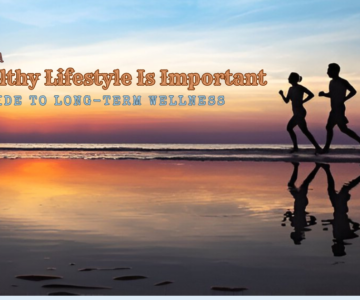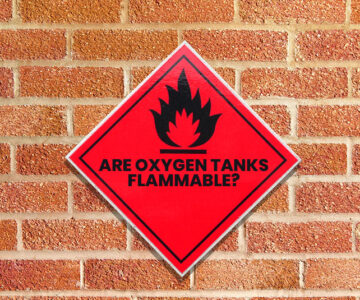 Gamifying Skill Exchanges to Encourage Participation and Reciprocityby admin / August 13, 2025
Gamifying Skill Exchanges to Encourage Participation and Reciprocityby admin / August 13, 2025Educating Consumers: The Science of Sleep Made Simple
In a world that never takes a break, understanding the science of sleep is more important, yet sleep is essential. Sleep is your body’s programmed maintenance plan. When in deeper stages of sleep, we are strengthening immune systems and storing memories, clearing metabolic waste through the glymphatic system. REM can be associated with creativity and emotional durability. There is new science to support every night of high-quality sleep is associated with better emotional regulation, problem-solving and lower risk of chronic diseases.
In short, if you want to enhance efforts at enhancing performance in any aspect of your life at work, when studying or out in the world and living the science of sleep is part of the overall wellness act for you.
Why the Science of Sleep Matters for Your Health
The science of sleep goes beyond the academic study of sleep, it is a model to live by. Sleep is our body’s built-in maintenance schedule. Good sleep is like hitting the reset button on your body and mind, it recharges your energy, balances your mood and gets you ready for the day ahead. Keep in mind that REM sleep is important for the processing of emotional events and contributes to resilience in those emotional events.
When sleep is restricted, these reliant mechanisms end up unequally situated, worth noting that long-term effects of sleep have been stark cognitive implications, immune suppression, increased risk for anxiety and increased risk for depression. If we can raise awareness to improve knowledge on sleep science we can reap the benefits together of increased productivity, better student outcomes and improved health in the community.
Sleep Myths the Science of Sleep Disproves
Many people live by supportive remedies or habits that don’t mesh with the science of sleep. For example:
- Melatonin supplements are useful for sleep cycle adaptations or in such cases as jetlag, but they are not at all a magical fix for chronic sleep issues.
- Magnesium is also worth trying for those feeling anxious who have found success with its potential; however, magnesium alone won’t have a significantly greater effect than the benefits gained from adopting healthy sleep habits.That’s why the science of sleep emphasizes building sustainable bedtime habits over relying on supplements alone.
- Eating higher protein and higher fiber diets from the pre-sleep recommendation had slight improvements for sleep quality, slight and not transformational.
The moral of the story is that supplements and dietary changes can be helpful but can’t replace established sleep habits.
How Sleep Supports Learning and Creativity?
The concept of “sleeping on it” is not just a saying. Data backs it up! Research has shown that after a good night’s sleep or even a short nap, a sleep process called neural reorganization happens. This is a prime example of how the science of sleep directly improves brain efficiency. For students, professionals and creatives alike, sleep science is important because our brains are actually working hard when we sleep.
Sleep spindles are bursts of brain activity that occur during non-REM sleep, they are significant for enhancement of memory and improvement of cognition (problem solving). In other words, if you are skipping sleep, you are foregoing all that great mental work occurring while you are asleep.
The Science of Sleep and the Power of Consistency
The amount of sleep is just one aspect, with the schedule’s consistency also being important. Sleep science has demonstrated that inconsistent sleep & wake times, as well as durations change your circadian rhythm which is an internal indicator from your body to help you develop your habits.
Research has shown that irregular samples of sleep can lead to increased chances of diabetes, heart disease and progressive diseases such as Parkinson’s. So, when you establish a sleep schedule, you will limit the chances of poor sleep and you will have better quality sleep, as well as general better health.
Science of Sleep: Environmental and Seasonal Factors
Hot summer nights are not just a nuisance. They can decrease your deep sleep. Research shows that when nighttime temperatures rise, the body finds it hard to cool down which often results in more disrupted sleep. This is just the reason why optimizing your sleep environment is an essential part of using sleep science in daily life. Cool, dark and quiet rooms are ideal but also investing in more breathable bedding helps as well.
Science of Sleep and the Role of Technology
Sleep science has created a lot of new technology. For instance, cir-cadian lighting systems that can track natural daylight cycles. Used with artificial intelligence, we are now developing tools to track sleep stages with greater accuracy than ever. These tools can help clinicians identify disorders earlier, enabling clinicians and specialists to quickly focus treatment. Experts do remind us that while trackers and these types of devices can provide useful interpretation, they should only be used as a reference and that the information they provide should not be used in the place of medical opinion.
Do these activities to improve Sleep:
- Try to follow the same time to sleep and wake up at sleep every day.
- Change your environment-sleep in a cool, dark and quiet environment.
- Limit screen time before bed – minimize the exposure of blue light for at least one hour before sleep.
- Be aware of your caffeine and alcohol intake – can affect your deep sleep stages.
- Use technology to your advantage – Document your patterns of sleep behavior but ultimately trust how you feel over what the data tells you.
Common Questions About Sleep Science
-
How many hours does an adult need to sleep?
The majority of adults need a minimum eight hours of sleep every night. Quality of sleep time is what matters.
-
Does going to bed at the same time help improve your sleep?
Yes, as your cir-cadian rhythm will get stronger and your sleep will improve when you go to bed at the same time each day.
-
Can napping replace missed night time sleep?
Yes, napping will alert you but typically, it won’t even substitute for lost, uninterrupted nighttime sleep.
-
Is it really that bad to be using mobile phones in bed?
Yes! blue light from a screen will suppress the production of melatonin and make it more difficult to fall asleep.
-
What is the number one thing I can do to sleep better tonight?
Turn off the thermostat in your bedroom, turn the lights down in your room and go to bed at normal time tonight.
The science of sleep gives us the power to be deliberate about our health, mood and productivity. The important question is, aware as we are of how absolutely critical sleep is.


